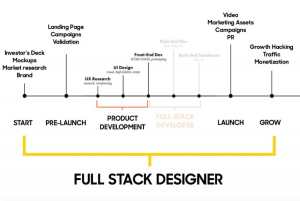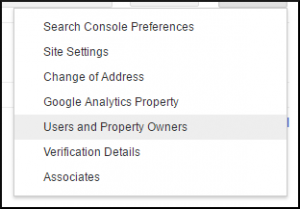— March 19, 2019
In the past few years, a lot of people have learned it’s easier now, more than ever, to be an entrepreneur. All one needs is a product, internet connection, responsive website, and they have a business.

The number of online businesses are continuing to grow. Virtually anyone can be an online entrepreneur today. Some make products, themselves (Etsy), while others purchase products to sell online (eBay or Amazon).
Before you jump on the bandwagon, however, you need to have some basics already set up, like a product to sell and a website to sell from.
The most difficult task, of course, is figuring out what is going to be the next “big thing” that will skyrocket your e-commerce business. As you can imagine, there are as many opinions about what products to sell online as there are ways to sell them.
In the end, you are the only one who can decide what is and isn’t a good product to sell; with that said, We have some general guidelines that can help you get started.
Finding Your Ideal Customer
First, you should know the target market you’re looking to sell to. You certainly don’t want to get into a market too small to generate significant recurring revenue, but you also don’t want one that is too big and competitive either. Determine your market size before you select a niche.
Once you have identified your market, find out as much as you can about the people comprising the market. Ask yourself what problems are they facing and what are the products that can potentially solve those problems?
It helps to build a picture of your ideal customer. Are they mostly males or females? What age range do they fall into? What are their likes and dislikes? Who or what do they turn to when they are looking for solutions to their problems?
By intimately knowing your audience, you will have a better grip on what their needs are and how you can fill them.
Promoted Products
You’re probably asking yourself where to start searching for product ideas to sell on your store. The best indicators are sometimes the most obvious.
When you’re browsing online stores, look at their offerings and take note of their promoted products. These sections often contain their top performing products. They are important to keep an eye on because they change frequently. Keeping up to date with the hottest selling items will inform the types of products you choose to sell on your online store.
Amazon even has a best sellers page where you can view over 20,000 products. These types of pages are where you can steal good product ideas for your business. When exploring these pages, click-through to products and see which items are recommended purchases as companion items. Pairing related items together are great ways to cross-sell and increase your revenue per purchase.
Competitive Analysis
Understanding your competition can give you valuable insight into which products are selling. Finding a market to sell to can be as simple as researching your competition, finding out what they are doing, and comparing their ideas to what you are planning to do.
As a matter of fact, businesses that don’t make money don’t stay in business. You should focus on the businesses or sellers that are thriving in specific niches. Look into their past and roughly determine what their trajectory has been. Over the course of comparing multiple businesses and sellers, you’ll find a pattern between the types of items they sell that can validate whether or not you should begin selling these particular types of products to the market.
Another tip you can employ is to check your competition’s social media accounts to see the engagement rates of their customers with their brand posts. Large amounts of positive engagement are signs these products are popular. On the flip-side, excessive complaints and negative feedback are great opportunities to find whether there’s a product category you could offer at a better value.
If you’ve exhausted your ideas for finding popular selling products, here’s a tip: look at your credit card statement to see what you are ordering most online. Go back six months and review your purchases to see how frequently you bought an online product. If you’re buying the same item once a month, there’s a really good chance others are doing the same or looking to buy something similar.
Existing Demand
The question to ask yourself when finding the right product to sell should be, “is there existing demand?” Future trends are predictions of an uptick in the present, so start your search by analyzing present demand.
Once you complete a competitive analysis, select a niche you’re confident in and determine the most popular products being searched with Google Trends and Google Keyword Planner.
Google Trends is a great free tool you can use to find total search volumes. With your niche in mind, take account of every type of product and product variation and search them through Google Trends. You can then compare which of these products are trending up and down in searches. Short-list all the best performing products and move on to the next step.
Keywords
Google Keyword Planner is a tool that will cost you some money to use individually; however, it is worth the purchase when combined with a Google AdWords account, as it’s included in the cost.
It’s one of the best keyword analytics platforms on the market and will help you to understand the best keywords to target surrounding the products you now want to market.
When you’re looking for keyword ideas for one of your products, type in a broad keyword in the “find new keywords” section text field. The keywords that populate will be directly related to your product category. This will, more likely than not, bring up high competition keywords. An advanced trick you can use to skirt the most generic and competitive keywords is to copy and paste a category page from another niche competitor site in to the text field. You’ll see a list of keywords your competitors are unlikely to know about.
You’ll also see search volume averages for your keywords and the level competition they face. Your task is to find relevant, high-traffic keywords for your products that have the least amount of competition. Try setting your search filters to exclude high competition and having at least 1,000 searches a month.
Lastly, one good sign of a strong niche market is if it has a large variety of long-tail keyword variations. This indicates your product is being searched for to the point it needs many variations.
Surveys
Don’t underestimate the power of a survey for collecting information. Once you identify your customer profile, send out surveys through your social media channels using Google Forms to elicit valuable customer feedback. Reach out to your colleagues, friends and family as well to help with feedback. It can be the quickest way for you to get a sense of direction. The information you collect will help you to come up with your minimum viable product, which you can then test in your niche.
Pricing Strategy
Quickly search images of the products you have in mind. When you land on products that are similar, take a mental note of their prices. They should often link to their product pages from Google. Build a list of these products and prices for reference and map out where your product would fit in comparison. It will give you a good basis to inform your pricing strategy from the onset. If you’re unsure you are charging the right price, retaining a profit margin of 30 per cent or more is a great indication you’re pricing effectively.
Selling Tips for E-Commerce Products

Certainly, within your target markets, there will be good and bad products that can potentially address customer problems. Know these products; list the qualities that make them a good fit or not.
For example, if you have identified a target market of women who want to buy picture frames, don’t just sell them generic ones. That market is very much over saturated. Instead, think to offer an adjustable, custom-designed picture frame. Something unique such as adjustable picture frames would fit much better in their homes and give them more freedom for interior design.
Weight
The right product weight is a understated consideration to most online sellers. Make sure the products you offer aren’t heavy. Remember, the heavier it is, the more it will cost in shipping.
It’s recommended the most a product should weigh for a dropshipped item is around one pound. If you’re planning to sell heavy products, re-calibrate your shipping strategy. Generally keeping your product below the one pound weight barrier will keep your costs low. Selling smaller weighted items protects you from any damages that might occur during shipping as well.
Repeat Buys
Recurring revenue is hard to achieve if you sell durable items that are meant to last. Many prefer to sell items designed to be repeatedly consumed. The problem with the prior is you are always looking for new consumer groups to market to. If you have a quality product that encourages repeat purchases from your customers, you don’t have to attract as many new customers. Your products will have a longer buy cycle as well.
Test the Buying Process
Test your suppliers. Be sure to order a product from your website and make notice of the time it takes for delivery, the quality of the purchased item, and the condition and look of the package. These factors largely influence your customer’s experience and how they perceive your brand.
Low Turn-over
Consider focusing on products that don’t have to be updated every year, so you’re not neglecting customers and constantly changing your website to catch up with each update. By selling longer life-cycle items, you’ll make your capital last longer.
Think Global, Not Local
With the increase of globalization, working with international suppliers have become more viable options. Not only can they reduce your bulk order costs, but they can offer products that are locally unavailable.
Anything that can’t be purchased locally will be purchased online. This is a prime opportunity for your online store to cash in, so if you’re not super niche, avoid including easily purchasable local items from your store’s offerings.
Hobbyists
All people are enthusiasts of something. Taking advantage a trending hobby could net you some serious cash. Hobbyists are customers who have deep pockets and love to spend on their craft. Including products catering to hobbyists, alongside your necessity products, is a great strategy to potentially boost your earnings.
Why Selling Solutions Beat Selling Products

People search online for a lot of reasons and finding a product or service to meet their needs is one of them. When you manage to capture people’s attention, make the most of it. When marketing your products, immediately highlight their purpose. Market your product as a solution to solve your customers’ problems. Touch on customer pain points and how your product can help relieve that pain. Include this write-up in the product description and make it succinct.
For advertising, use the PAS formula. This formula has been successfully used time and time again in ad copy and is a proven method to induce purchases. Begin with a problem or pain point that addresses your potential customers. Make the issue as specific as you can to your target market. If you’re selling an unbreakable chew toy for dogs, go over the conventional problems surrounding chews toys that break. What are the consequences? It may be the dog then gets tired of the broken chew toy and moves on to chewing on your shoes.
The next step in the formula is to agitate the reader with descriptive details about the problem, so they can relate. Continuing with the chew toy example, maybe the dog happens to chew on guests shoes or more important items. In this stage, the copy should escalate the problem to the point where the reader is invested because your copy is hitting on something that really matters to them. If what matters to them is a well behaved dog, outline how dogs are misbehaved without something such as your product.
Now that you’ve setup the problem and agitated it, you can provide your solution. Once the reader realizes the problem, you’ve concocted, is affecting something they care about, you swoop in to suggest your product as means to relieve their pain, instead of just being another commodity.
Conclusion
Remember to do your due diligence before selecting a product to sell. With an informed choice, after knowing your markets, product considerations, and the PAS formula, your career as a newly minted online entrepreneur will definitely soar. Just make sure to have an attractive e-Commerce store when you’re ready to sell.
Digital & Social Articles on Business 2 Community
(73)
Report Post










